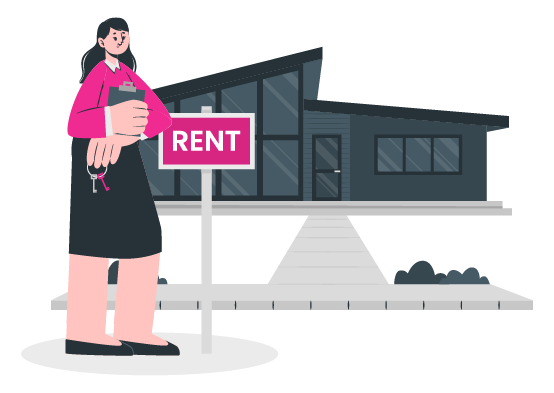With the rising cost of rent and an increasing demand for flexible housing options, sub-letting in Ireland has become a popular solution for tenants looking to offset expenses. However, sub-letting comes with legal considerations and best practices that every tenant should understand. Whether you’re considering subletting in Galway, Limerick, or Waterford, knowing your rights and responsibilities is crucial. In this guide, we explore the key subletting rules in Ireland, tenant rights, and best practices for a hassle-free experience, such as using tools like FindQo.ie to simplify your search.
What is Sub-Letting?
Sub-letting occurs when a tenant rents out part or all of their rented accommodation to another person, known as the sub-tenant. In Ireland, sub-letting is subject to strict Irish tenancy regulations, and it’s essential to follow the legal framework to avoid complications with landlords and authorities.
Subletting Laws in Ireland
Before sub-letting your property, you need to be aware of the sub-letting laws in Ireland. Here are the key legal points:
- Landlord Approval: A tenant must obtain written consent from their landlord before sub-letting. Failing to do so may breach the lease agreement, leading to eviction.
- Eligibility for Sub-Letting: Only tenants with Part 4 rights under the Residential Tenancies Act can legally sub-let their accommodation.
- Lease Agreement Terms: Check your lease agreement for clauses that may restrict or prohibit sub-letting.
- Tenant Responsibility: Even if you sub-let, you remain responsible for rent payments and property maintenance.
Can Tenants Sub-Let in Ireland?
Yes, but only under specific conditions. The tenant sub-letting rights vary depending on the rental agreement and location. Sub-letting in Galway, Limerick, and Waterford follows the national laws but may also be influenced by local housing regulations.
Legal Rules for Subletting in Galway
Galway, with its large student population, has a high demand for short-term rentals. However, strict regulations apply:
- Landlords in Galway typically require detailed sub-letting agreements.
- The Residential Tenancies Board (RTB) oversees disputes and compliance issues.
- Rent cannot exceed what the tenant originally pays unless agreed upon with the landlord.
Best Practices for Subletting in Limerick
If you plan on sub-letting in Limerick, follow these best practices:
- Secure Written Permission: Always document the landlord’s consent.
- Screen Sub-Tenants Carefully: Choose responsible sub-tenants to avoid property damage and legal issues.
- Draft a Sub-Letting Agreement: Clearly outline rent, deposit, and responsibility terms to prevent misunderstandings.
Tenant Rights for Subletting in Waterford
Waterford, known for its affordable rental market, offers opportunities for sub-letting. If you’re considering sub-letting here, keep in mind:
- Sub-tenants have rights: They are protected under Irish tenancy laws if the sub-let is legally established.
- Deposit Handling: Clearly agree on who manages the security deposit between the tenant and sub-tenant.
- Landlord Notification: Even if your lease permits sub-letting, always notify your landlord to avoid disputes.
How to Legally Sub-Let a Property in Ireland
To legally sub-let a property in Ireland, follow these steps:
- Review Your Lease Agreement: Ensure that sub-letting is permitted under your contract.
- Request Landlord Approval: Obtain written consent before proceeding.
- Register with the RTB: In some cases, the sub-let agreement should be registered.
- Set Clear Rental Terms: Define rent, utility costs, and responsibilities in a signed agreement.
- Ensure Compliance with Local Laws: Cities like Galway, Limerick, and Waterford may have additional rental regulations.

Sub-letting can be a great way to manage rental costs, but it must be done within the legal framework. Tenants in Galway, Limerick, and Waterford should ensure they have landlord approval, understand their rights, and establish clear agreements with sub-tenants. By following these sub-letting best practices, you can avoid legal issues and create a smooth rental experience.
For more guidance on sub-letting and renting in Ireland, visit FindQo.ie.


